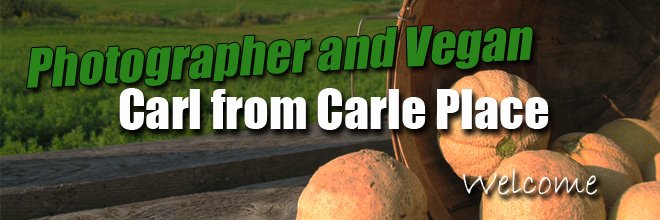VegFamily Presents
From the Editors of E/The Environmental MagazineDear EarthTalk: Vegetarians and vegans are so self-righteous about not eating meat and how meat eating is so bad for the environment. How true are these claims? -- Frank Doolittle, Sudbury, MA There has never been a better time to go vegetarian. Mounting evidence suggests that meat-based diets are not only unhealthy, but that just about every aspect of meat production—from grazing-related loss of cropland, to the inefficiencies of feeding vast quantities of water and grain to cattle, to pollution from 'factory farms'—is an environmental disaster with wide and sometimes catastrophic consequences. There are 20 billion head of livestock on Earth, more than triple the number of people. According to the Worldwatch Institute, global livestock population has increased 60 percent since 1961, and the number of fowl being raised for food has nearly quadrupled in the same time period, from 4.2 billion to 15.7 billion. The 4.8 pounds of grain fed to cattle to make one pound of beef represents a colossal waste of resources in a world teeming with hungry and malnourished people. According to Vegfam, a 10-acre farm can support 60 people growing soy, 24 people growing wheat, 10 people growing corn—but only two raising cattle. Food First's Frances Moore Lappé says to imagine sitting down to an eight-ounce steak. Then imagine the room filled with 45 to 50 people with empty bowls... For the feed cost of your steak, each of their bowls could be filled with a full cup of cooked cereal grains. Harvard nutritionist Jean Mayer says that reducing U.S. meat production 10 percent would free grain to feed 60 million people. U.S. animal farms generate billion of tons of animal waste every year, which the Environmental Protection Agency says pollute our waterways more than all other industrial sources combined. The infamous 1989 Exxon Valdez oil spill dumped 11 million gallons of oil into Prudoe Bay, but the relatively unknown 1995 New River hog waste spill in North Carolina poured 25 million gallons of excrement into the water, killing 14 million fish and closing 364,000 acres of shell fishing beds. Hog waste spills have caused the rapid spread of Pfiesteria piscicida, which has killed a billion fish in North Carolina alone. Other than polluting water, beef production alone uses more water than is used in growing our entire fruit and vegetable crop. And over a third of all raw materials and fossil fuels consumed in the U.S. are used in animal production. Meat also increases our carbon footprints. According to the United Nations' Food and Agriculture Organization, livestock around the world contribute more greenhouse gases (mostly methane) to the atmosphere—18 percent of our total output—than emissions from all the world's cars and trucks. "There is no question that the choice to become a vegetarian or lower meat consumption is one of the most positive lifestyle changes a person could make in terms of reducing one's personal impact on the environment," says Christopher Flavin of the Worldwatch Institute. "The resource requirements and environmental degradation associated with a meat-based diet are very substantial."

No comments:
Post a Comment